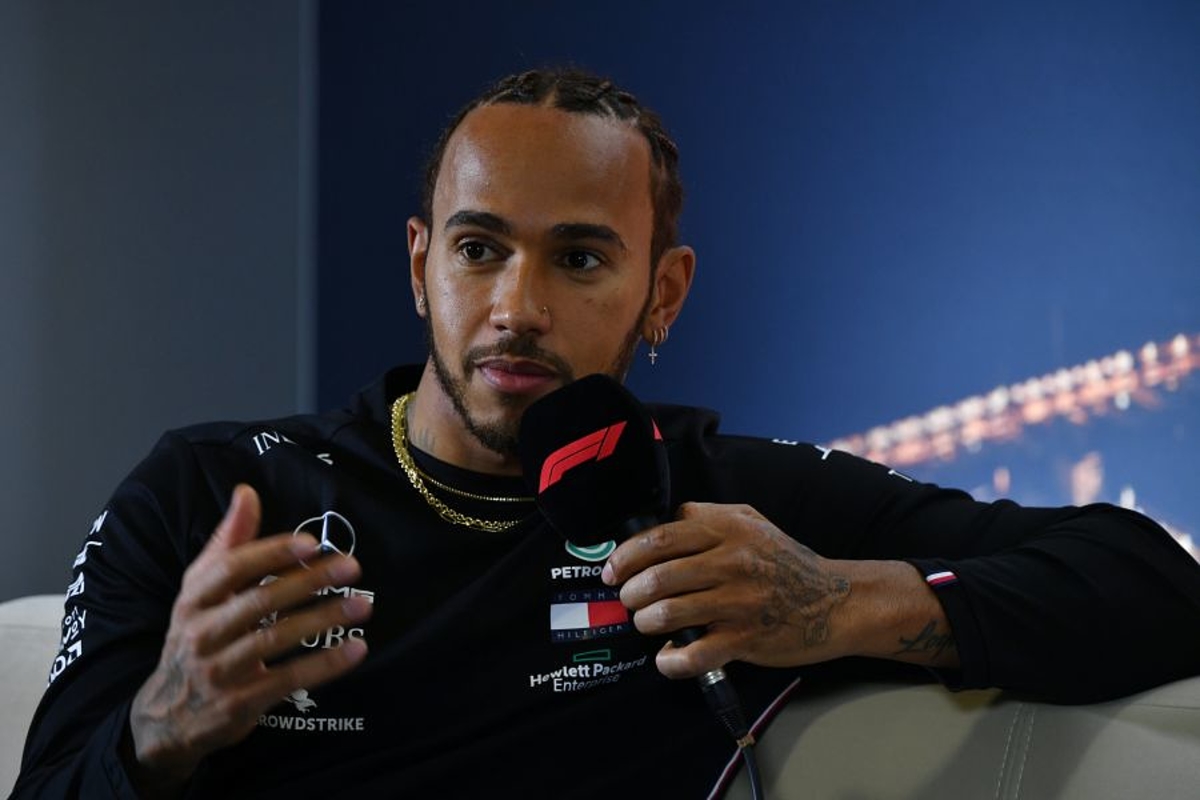Ahead of the Australian Grand Prix in March, several drivers spoke out on how they believed Formula 1 should never have travelled to the country given the emerging coronavirus situation.
Lewis Hamilton delivered the knockout blow, suggesting that "cash is king." The situation is now improving but F1 seem set on getting racing going in 2020, no matter what it takes to do so. Are Liberty Media proving Hamilton right?
When the scale of the Covid-19 crisis began to be recognised, sporting governing bodies pulled the plug almost immediately.
Football leagues and international tournaments were postponed, while rugby union's Six Nations was put on hold with only a handful of games remaining.
But F1 pressed on until there was no other option available, the teams ultimately taking control of the situation during the well-documented chaos of the Australian GP weekend.
On Friday 13 March, the day the F1 season opener was cancelled, the death toll from Covid-19 in the UK was just 41. Globally, the total number of deaths was only 4,955, 3,180 of these from China alone.
By Monday 27 April, the most recent date for which statistics are available at the time of writing, the UK alone has suffered 21,092 deaths.
The question then, is this: if it was not safe for F1 to go racing when the pandemic was in its infancy, why do Liberty Media and the FIA consider it safe to race now?
Formula 1 CEO Chase Carey: 'We are targeting season start in Austria in July'Read more
The argument F1 would like you to believe, and this can be extended to many sporting competitions, is that broadcasting live sport on television again would boost the morale of the public who are struggling under lockdown.
Being able to watch their sporting heroes would, in theory, distract from the troubles of the outside world for a short period of time. But where this falls apart, however, is that while watching live sport would be brilliant, surely seeing the empty stands and the lack of an atmosphere would ruin the illusion.
Just imagine the incident between Charles Leclerc and Sebastian Vettel in Brazil without the gasping of the crowd, Lewis Hamilton crossing the line to win at Silverstone without the British public roaring in support or Leclerc's podium celebrations in Italy without the tifosi.
Now the picture changes, doesn't it? So if that is the argument the sport wants you to listen to, what is the one that they want you to ignore?
Hamilton summed it up perfectly in Melbourne with his "cash is king" comment, and given that much of the talk surrounding F1 in recent weeks has been about money, or a lack of it, it appears as though the willingness of Liberty Media to take a risk on health and safety is growing.
The claims are that social distancing would be enforced, teams would be restricted to as few members of personnel as is absolutely necessary and that media and fans would be refused entry.
Austrian government will "not stand in the way" of behind-closed-doors raceRead more
Strict quarantine periods ahead of the Austrian Grand Prix have been proposed, and social distancing would be observed on site, early indications suggesting that teams would be unable to mingle with each other.
A good start, but how do you guarantee that the family members of personnel, people with whom team members are likely to have contact with between races, have not become infected while shopping or enjoying their permitted outdoor exercise?
The short answer - you can't. Also, we should not forget the marshals, for whom implementing social distancing for the duration would be almost impossible.
In the first few days after the cancellation of the Australian GP, over $2.6 billion was wiped from the stock value of Formula 1. Since then, the share price has stabilised but McLaren CEO Zak Brown told the BBC, "I could see four teams disappearing if this isn't handled the right way."
Liberty Media addressed this by making large advance payments to certain teams after a 're-attribution' of assets to ensure that "F1 could secure incremental liquidity," in the words of Liberty Media CEO Greg Maffei.
Liberty Media planning for "zero races" in 2020Read more
However, money does not grow on trees and Liberty Media are fully aware that, unless they can complete in 15 grands prix, the contracts with major television networks are null and void.
In a billion dollar business like F1, the damage that a year without trading could do is unthinkable and this is exactly why the sport is rushing for a return.
When asked if we would like to see F1 back on our television screens, surely the answer has to be yes, but only when it is safe and correct for this to happen.
We cannot tell the future, and it is possible that July could be the correct time. But with bans on major events across several European countries lasting to the end of August, the evidence does seem to point towards now not being the right moment to resume racing.
One final question to ponder, if a budget cap had previously been introduced and costs were not so high, would the urgency to go racing again be so great, or would people be more willing to listen to the science?
Related










































 Grand Prix De Monaco 2025
Grand Prix De Monaco 2025  Gran Premio de España 2025
Gran Premio de España 2025  Grand Prix du Canada 2025
Grand Prix du Canada 2025  Grand Prix of Austria 2025
Grand Prix of Austria 2025  Grand Prix of Belgium 2025
Grand Prix of Belgium 2025  Grand Prix of Hungary 2025
Grand Prix of Hungary 2025  Grand Prix of Azerbaijan 2025
Grand Prix of Azerbaijan 2025  Grand Prix of Singapore 2025
Grand Prix of Singapore 2025  Gran Premio de la Ciudad de Mexico 2025
Gran Premio de la Ciudad de Mexico 2025  Grande Prêmio de São Paulo 2025
Grande Prêmio de São Paulo 2025  Qatar Grand Prix 2025
Qatar Grand Prix 2025  Grand Prix of Abu Dhabi 2025
Grand Prix of Abu Dhabi 2025 